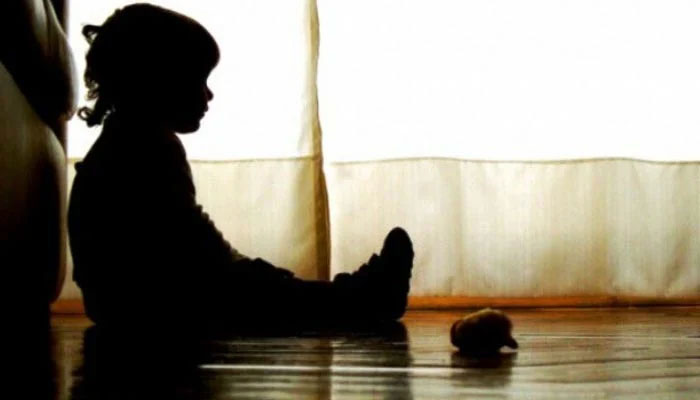Saving our children
NGO Sahil, an alarming 11 children are abused every day in Pakistan
In 2018, the horrific Zainab rape and murder case shocked the nation, prompting leaders to promise a safer environment for children. Yet, five years later, the situation remains dire. Recent reports of six boys rescued from their abusers by Punjab police reveal that children in Pakistan continue to be at risk, with authorities doing little to protect them. The fact that these children were drugged and their explicit videos recorded for profit underscores the systemic failure of society and its guardians. While it is commendable that law enforcement intervened, the deeper issue lies in the rampant exploitation of children across the country. Too many cases of abuse go unreported, unpunished, and untreated. According to the NGO Sahil, an alarming 11 children are abused every day in Pakistan, with many cases involving trusted family members or neighbours.
The Kasur child abuse scandal should have served as a turning point, exposing the widespread nature of this crisis. However, like many other issues, it has been swept under the rug. Promises of a ‘zero-tolerance’ policy toward abusers are insufficient; the real goal should be to prevent these heinous crimes in the first place. The state must urgently rethink its approach to child protection, ensuring that this promise is more than just rhetoric. Children who endure sexual abuse face lifelong trauma that impedes their ability to thrive. For many, speaking out is nearly impossible, particularly when the abuser is someone they know and trust. To address this, we need to focus on proactive solutions. Every school should employ trained child psychologists or psychiatrists who can conduct regular sessions with students. Creating a safe space for children to discuss their concerns is crucial for early detection of potential abuse. Child protection centers must be established to provide temporary refuge for children until their homes are safe. Too often, children remain in abusive environments due to a lack of alternatives.
The problem extends beyond Pakistan’s borders, as the dark web fuels a market for child pornography. Ethical hacking and advanced cybersecurity measures must be employed to dismantle these operations. Law enforcement needs to be more vigilant in combating technological exploitation, as cybercriminals use tactics like posing as gaming apps to lure children into dangerous situations. Our children are our future, and we are failing them. If we do not take swift action, we will continue to allow predators to exploit them for their own gain. It is time to act decisively and pledge to safeguard our children from this epidemic of abuse. The protection of our children cannot be an afterthought; it must be our highest priority.
-
 Factory Explosion In North China Leaves Eight Dead
Factory Explosion In North China Leaves Eight Dead -
 Blac Chyna Opens Up About Her Kids: ‘Disturb Their Inner Child'
Blac Chyna Opens Up About Her Kids: ‘Disturb Their Inner Child' -
 Winter Olympics 2026: Milan Protestors Rally Against The Games As Environmentally, Economically ‘unsustainable’
Winter Olympics 2026: Milan Protestors Rally Against The Games As Environmentally, Economically ‘unsustainable’ -
 How Long Is The Super Bowl? Average Game Time And Halftime Show Explained
How Long Is The Super Bowl? Average Game Time And Halftime Show Explained -
 Natasha Bure Makes Stunning Confession About Her Marriage To Bradley Steven Perry
Natasha Bure Makes Stunning Confession About Her Marriage To Bradley Steven Perry -
 ChatGPT Caricature Prompts Are Going Viral. Here’s List You Must Try
ChatGPT Caricature Prompts Are Going Viral. Here’s List You Must Try -
 James Pearce Jr. Arrested In Florida After Alleged Domestic Dispute, Falcons Respond
James Pearce Jr. Arrested In Florida After Alleged Domestic Dispute, Falcons Respond -
 Cavaliers Vs Kings: James Harden Shines Late In Cleveland Debut Win
Cavaliers Vs Kings: James Harden Shines Late In Cleveland Debut Win -
 2026 Winter Olympics Snowboarding: Su Yiming Wins Bronze And Completes Medal Set
2026 Winter Olympics Snowboarding: Su Yiming Wins Bronze And Completes Medal Set -
 Trump Hosts Honduran President Nasry Asfura At Mar-a-Lago To Discuss Trade, Security
Trump Hosts Honduran President Nasry Asfura At Mar-a-Lago To Discuss Trade, Security -
 Cuba-Canada Travel Advisory Raises Concerns As Visitor Numbers Decline
Cuba-Canada Travel Advisory Raises Concerns As Visitor Numbers Decline -
 Anthropic Buys 'Super Bowl' Ads To Slam OpenAI’s ChatGPT Ad Strategy
Anthropic Buys 'Super Bowl' Ads To Slam OpenAI’s ChatGPT Ad Strategy -
 Prevent Cancer With These Simple Lifestyle Changes
Prevent Cancer With These Simple Lifestyle Changes -
 Air Canada Flight Diverted St John's With 368 Passengers After Onboard Incident
Air Canada Flight Diverted St John's With 368 Passengers After Onboard Incident -
 Experts Reveal Keto Diet As Key To Treating Depression
Experts Reveal Keto Diet As Key To Treating Depression -
 Inter Miami Vs Barcelona SC Recap As Messi Shines With Goal And Assist
Inter Miami Vs Barcelona SC Recap As Messi Shines With Goal And Assist




